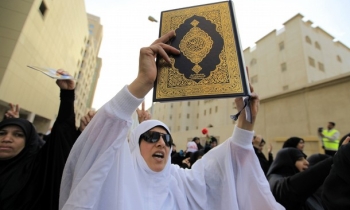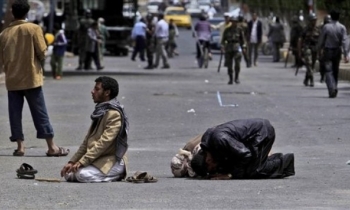The International Federation of Journalists (IFJ) Tuesday welcomed a renewed call by European parliamentarians for Ukraine to bring to justice "those who instigated and organised the murder of Heorhiy Gongadze."
The call was made by the Committee on Legal Affairs and Human Rights of the Parliamentary Assembly of the Council of Europe in Strasbourg who today expressed "deep concern" that Ukraine had made "no progress" in holding to account the organisers of the murder, which was most likely committed by interior ministry general Aleksei Pukach on September 16, 2000.
"We welcome the stand taken by the Parliamentary Assembly," said IFJ General Secretary Aidan White. "Tuesday's resolution in Strasbourg is a clear condemnation of Ukraine's failure to investigate and bring to justice those in the political establishment who stand behind this murder, which constitutes the most notorious assault on freedom of speech in Ukraine."
Gongadze's headless body was found in a town near Kiev in November 2000. Then audio tapes made covertly by Major Mykola Melnychenko, a bodyguard of the then president, Leonid Kuchma, were released. On the tapes Kuchma and other senior politicians could be heard discussing harming Gongadze.
Three of Pukach's subordinates were this year convicted and jailed for their part in helping the murder. But the involvement of politicians and senior interior ministry officials has never been investigated.
The legal affairs committee in Strasbourg heard a report by former German justice minister Sabine Leutheuser-Schnarrenberger, who has monitored the Gongadze case, and called on the Ukrainian authorities to take a series of measures including:
- To open a criminal investigation into those who failed to protect Gongadze - who before his death complained to the prosecutor's office about surveillance by interior ministry officers;
- To investigate the release of Pukach from custody in 2003 and his subsequent disappearance, and open criminal cases against those responsible;
- To authenticate "without further delay" the so-called "Melnychenko tapes" made in president Kuchma's office, to allow them to be used as evidence in court "without further delay";
- To investigate other related issues, including the organisation of the attack on journalist Olexiy Podolsky a few months before Gongadze's death, and the strokes suffered by senior interior ministry officials Fere and Dagaev in 2003.
A lengthy report by Leutheuser-Schnarrenberger detailed her efforts to convince Melnychenko, the Ukrainian prosecutor and the US justice department to work together to authenticate the tape recordings made in Kuchma's office. The prosecutor had "taken several years before making the required official request," she complained.
"The report by Mrs Leutheuser-Schnarrenberger makes depressing reading," White said. "She has done her best to compel the Ukrainian prosecutor to work effectively in this case, as the IFJ and campaigning organisations have also done. The international community must make clear to Ukraine that inaction will not be tolerated. This is the clearest case of an attack on freedom of speech being undertaken with impunity."









